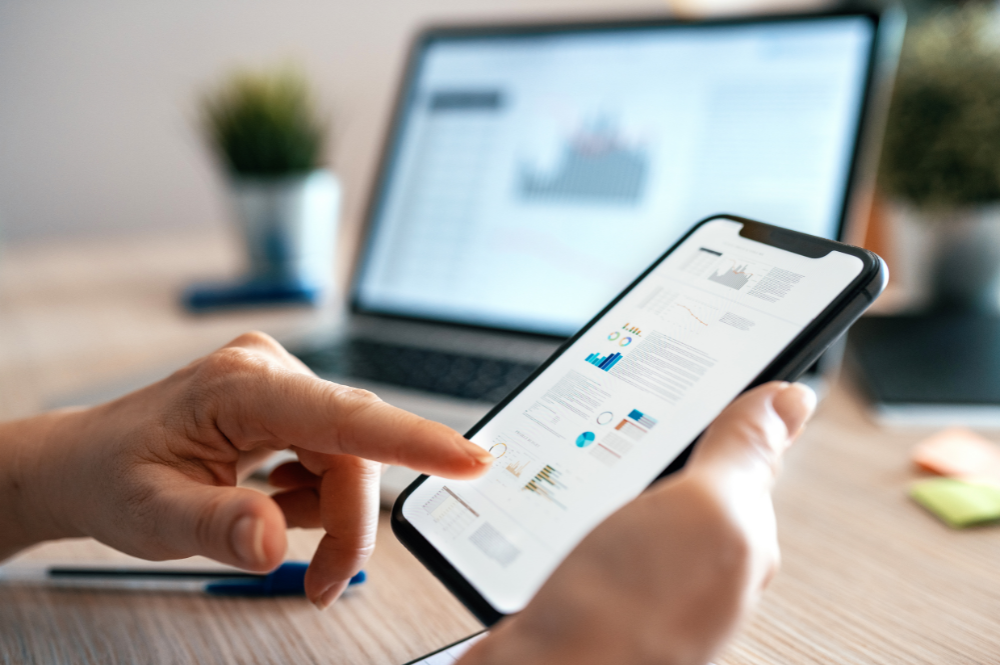You’ve had a great idea, analyzed the market to make sure it’s unique, and secured funding. Now, you’re looking for a developer to help bring your idea to life. In order for your app to succeed in a saturated market, you will need a developer who will create a customized solution that puts privacy and security at the forefront of development.
Why Privacy and Security Matters
As mobile apps have become as much a part of our daily lives as our morning cups of coffee, privacy, and security have become one of the most important aspects. We all saw the fallout from the Cambridge Analytica scandal in 2018, and app users are more aware than ever about where they share their data and who they trust.
That’s why safeguarding user data and ensuring their digital well-being has emerged as a critical responsibility when it comes to custom mobile app development for developers and businesses alike.
User Trust and Data Integrity: At the heart of mobile app privacy and security lies the trust that users place in the applications they interact with. Users entrust their personal information, financial details, and sensitive data to apps, expecting that their confidentiality will be upheld. Any breach of this trust not only erodes user confidence but can lead to irreparable damage to a brand’s reputation.
Protection Against Cyber Threats: The digital landscape is rife with potential threats ranging from data breaches to identity theft. Apps, acting as gateways to personal information, are prime targets for malicious actors seeking vulnerabilities. Robust security measures not only safeguard user data but also fortify apps against cyberattacks, ensuring that users’ experiences remain uncompromised.
Regulatory Compliance and Legal Accountability: Governments and regulatory bodies worldwide have recognized the criticality of user data protection. Non-compliance with data privacy regulations can result in severe legal repercussions, financial penalties, and reputational damage. Prioritizing mobile app privacy ensures adherence to regulatory frameworks such as GDPR, CCPA, and others.
Fostering User Engagement and Retention: Privacy-conscious users are more likely to engage and retain apps that prioritize their data security. By demonstrating a commitment to user privacy, apps build stronger relationships with their audience, fostering loyalty and reducing churn rates.
Preserving User Experience: Mobile app privacy and security are not synonymous with inconvenience. Rather, they pave the way for seamless experiences where users interact with confidence. Effective security measures, such as encryption and authentication protocols, ensure that users can enjoy the app’s functionalities without fearing data breaches.
Ethical Responsibility: Developers and businesses bear an ethical responsibility to protect users’ digital identities. Recognizing the impact of a data breach on an individual’s life, it is imperative to uphold the principles of respect, integrity, and accountability while handling user data.
When mobile app security is compromised, it can lead to severe consequences for both businesses and users. Unauthorized access to sensitive data, financial fraud, identity theft, and reputation damage are just a few of the potential risks. Business owners must prioritize mobile app security to safeguard their reputation, customer trust, and overall business success.
Privacy and Security Features
While some privacy and security features are well-known, most happen behind the scenes ensuring your users’ information doesn’t fall into the wrong hands. To have a secured app, an end-to-end encryption process is required to safeguard information like the name, age, address, and payment information of your customers and gain their loyalty in the long run.
Here is a list of privacy and security features your app should have:
Data Collection Opt-Out
Since users’ personal information is of utmost importance, it is vital to include a data collection opt-out feature in the application. By allowing users to opt out of data collection, you gain your client or customer’s trust while securing their data and ensuring their privacy.
Secured Platform
Mobile app development must be done on a secured platform. Using the proper IDE (Integrated Development Environment) can enable developers and testers to write code, perform tests, and debug operations on a single platform. This avoids the need to switch to different platforms or tools and maintains the integrity and confidentiality of the code.
Encryption
Encrypting the source code by using specific tools will prevent it from becoming vulnerable to attackers. Using a good anti-virus can also enable your systems to be secured and ward off any risks of cyber attacks.
Patching Operation
A patch is a software update made to fix a particular program code. Performing patching operations can also fix the vulnerabilities of the application. Just be sure to set up a push notification that lets your users know when they need to update their app after a patch or update has been made.
Code Hardening and Code Signing
Code hardening and code signing are vital practices for securing mobile applications. Code hardening is a programming practice to ensure the utmost security of the application and avoid various hacking techniques. It is performed by following certain coding standards during the application development phase. In addition, code signing is a process of adding a digital signature to the operating system (OS) of the device to confirm application authenticity.
Authorizing APIs
Whenever your application communicates internally for different operations, it must be authorized to create secure e-commerce operations.
Biometric Identification
Biometric identification is an app security feature to log into an app. It can help users securely save their data into the app without any breaches or hacks. In addition, your clients or consumers will trust an app that provides legitimate access through fingerprint recognition and face recognition more than one that doesn’t.
Without having general data protection in place, your application can be vulnerable to hackers causing financial losses, losing sensitive data, causing a bad reputation for your business, and eventually losing customers or clients.
At Confianz, our developers incorporate the above features including encryption, authentication, authorization, and data protection mechanisms into your app to safeguard it against any party that tries to gain access without the proper permissions.
What else can our developers help you with? They can help your app stand out by:
- Making it responsive so it adapts to different screen sizes and resolutions on various devices. This feature improves user experience and accessibility.
- Including push notifications that communicate with the user about information like updates, offers, reminders, or alerts. Push notifications keep the user engaged with your app, even when they aren’t actively using it.
- Optimizing energy consumption with battery-saving features. Features include reducing background activities, data usage, and screen brightness.
- Personalizing your app for your users. Giving users the power to personalize the app according to their preferences and needs will give your app an edge.
- Allowing users to work offline without internet connectivity. Smart apps allow users to work online and offline ensuring no interruptions or delays due to network connectivity.
These are just some of the vital features the team at Confianz can include in your custom mobile app development.
Contact us today to learn how to expand your market reach, grow your business, and increase your ROI.







